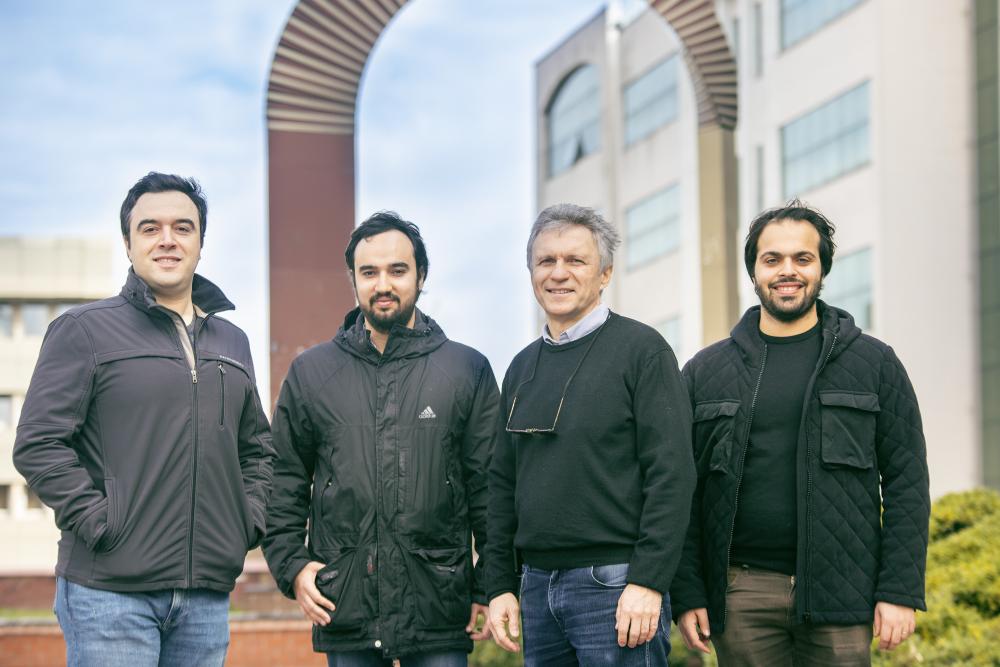The original interview (in Turkish) can be accessed from here.
A technology developed for smartwatches can measure affective reactions such as stress, mood changes, sleep quality, and generate instant reports. Thus, making it easier to follow the course of the disorder without violating social distancing. This project is within the scope of the AffecTech Project of the European Union H2020 research program and is being led by a professor of Computer Engineering at Boğaziçi University, Dr. Cem Ersoy.
The importance of wearable technologies is now better understood with the Covid-19 epidemic adding the concept of social distance to our lives. Thanks to wearable technologies, it is no longer a dream to detect sleep disorders without having to stay in a sleep center or to have blood pressure measured without contact with healthcare professionals. A technology developed for smartwatches can measure affective reactions such as stress, mood changes, sleep quality, and generate instant reports. Thus, making it easier to follow the course of the disorder without violating social distancing. This project is within the scope of the AffecTech Project of the European Union H2020 research program and is being led by a professor of Computer Engineering at Boğaziçi University, Dr. Cem Ersoy.

The research titled “Measuring stress-like emotional responses, mood changes and sleep quality through daily smartphones and wearable devices” which is continuing under the European Union H2020 Research Programme. Leader of the project, Dr. Cem Ersoy and his team members, Yekta Said Can, Niaz Chalabianloo and Deniz Ekiz have developed a stress detection system using smart wristwatches that allows instant reporting of emotional changes such as stress and impairment of sleep quality and can be used without disturbing the individuals daily life flow. Professor Dr. Cem Ersoy explained that changes in the body can now be detected during stress using the optical (PPG) sensor on the back of the smartwatch.
"With the use of smartwatches and the algorithms we have developed, we can follow the mood changes by looking at the variability of the heartbeat without a need to ECG and variety of electrodes that you usually have to wear or attach to your body to check your heart signals. In addition to the heart rate variance, we can also measure electrodermal activity by sensing the changes in temperature and conductivity of the skin. It is especially important to measure these values because when we experience stress, the conductivity value of our skin also changes“.
Cem Ersoy, explained the working principles of the smart watches as follows:
"While the user continues their daily life comfortably with her/his smart wristwatch, researchers must deal with the challenges it raises. Since the wrist is a very active limb, the quality of the signal received during the activity can be impaired. For this reason, we must first clear the artifacts in the signal. It already has sensors like the accelerometer, and this sensor can say that the person is extremely mobile at the moment. In this way, we know at which points the signal needs to be cleaned. After the signal is cleared, it is classified by machine learning methods. This classification can be in the form of "stressed, not stressed" in two classes, or triple like "stress, medium stress, high stress" or on a scale ranging from 0 to 100. To train the machine learning system, you need to collect data. There's something the system tells you, but we have to compare it to the real situation to understand its accuracy."
The need for sleeping labs can disappear.
Ersoy stated that with the smartwatch algorithm they have developed correspondingly, they can also offer solutions for the detection of problems arising from sleep quality: "Normally, sleeping labs are used to detect sleep apnea. In such labs, many electrodes are attached to your head, heart, and legs, and you are expected to sleep when you have several cameras on you. In such a room, you are expected to wear your pajamas and sleep, and only one person can stay in this room overnight. Using the technology we have developed, you only need to wear the wristwatch and go home".

"The Affectech Project", also known as "Maria Sklodowska-Curie Innovative Training Network", is funded by the European Commission H2020, and Bogazici University is the only participant from Turkey. The project also Includes an international doctoral student training program.
Stating that there are 15 Ph.D. students from 9 different countries in the project, Ersoy added: "the project supports Ph.D. students and demands that Ph.D. students in each country must be a citizen of another country in order to encourage international networking and mobility. The universities and institutions involved in the project can, in fact, be divided into three different groups. One is the computer engineers like us, and this group performs technical operations such as perceiving the signals from sensors. One group is from the departments of clinical psychology, and the other is the group that designs for human-computer interaction. The goal of the project is to transform the designed technologies into products in the future."
Other participants of the AffecTech project are as follows:
Lancaster University – UK
Kungliga Tekniska Hoegskolan, Sweden
University of Oxford, UK
Trinity College, Ireland
Universita Di Pisa, Italy
Universitat Jaume I De Castellon, Spain
Universita Cattolica Del Sacro Cuore, Italy
Philips Research, Netherlands
The Leeds Teaching Hospitals National Health Service Trust, UK
Plux – Wireless Biosignals, Portugal

